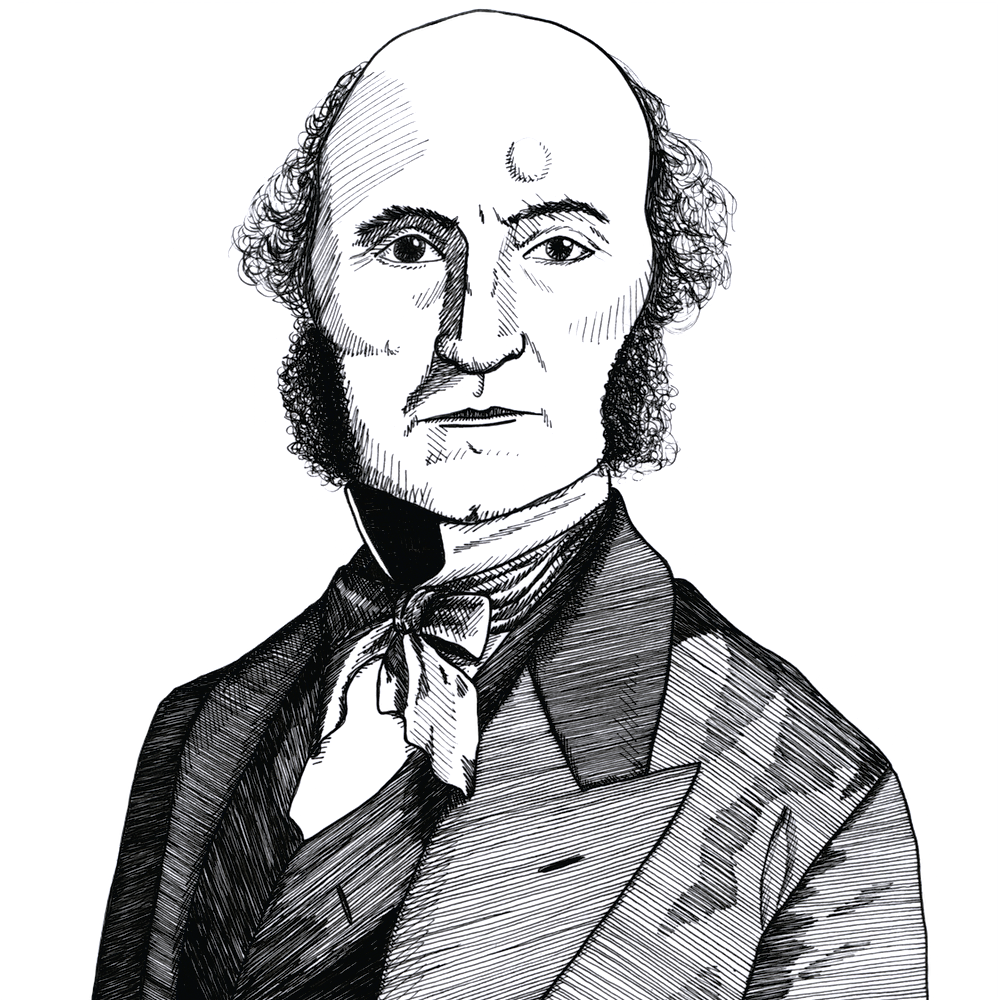
Quotes by John Stuart Mill
1806 – 1873
John Stuart Mill (1806-1873) was the precocious child of the Philosophical Radical and Benthamite James Mill. Taught Greek, Latin, and political economy at an early age, he spent his youth in the company of the Philosophic Radicals, Benthamites and utilitarians who gathered around his father James.
Bio
Mill went on to become a journalist, Member of Parliament, and philosopher and is regarded as one of the most significant English classical liberals of the 19th century.
See also our collection of extracts, essays, and other resources on Mill.
See the Liberty Matters online discussions on J.S. Mill & Life Writing and Reassessing the Political Economy of John Stuart Mill
For additional information about John Stuart Mill see the following:
- detailed Table of Contents of the 32 vol. Complete Works
- Essays on JS Mill
- Timeline on the Life and Work of J.S. Mill
- at our sister website Econlib: the Concise Encyclopedia of Economics entry on Mill
Women’s Rights
J.S. Mill denounced the legal subjection of women as “wrong in itself” and as “one of the chief hindrances to human improvement” (1869)
Property Rights
J.S. Mill’s great principle was that “over himself, over his own body and mind, the individual is sovereign” (1859)
Law
J.S. Mill in a speech before parliament denounced the suspension of Habeas Corpus and the use of flogging in Ireland, saying that those who ordered this “deserved flogging as much as any of those who were flogged by his orders” (1866)
Politics & Liberty
J.S. Mill was convinced he was living in a time when he would experience an explosion of classical liberal reform because “the spirit of the age” had dramatically changed (1831)
Women’s Rights
J.S. Mill spoke in Parliament in favour of granting women the right to vote, to have “a voice in determining who shall be their rulers” (1866)
Women’s Rights
J.S. Mill in “The Subjection of Women” argued that every form of oppression seems perfectly natural to those who live under it (1869)
Colonies, Slavery & Abolition
John Stuart Mill on the “atrocities” committed by Governor Eyre and his troops in putting down the Jamaica rebellion (1866)
Politics & Liberty
John Stuart Mill on the need for limited government and political rights to prevent the “king of the vultures” and his “minor harpies” in the government from preying on the people (1859)
Women’s Rights
John Stuart Mill uses an analogy with the removal of protective duties and bounties in trade to urge a similar “Free Trade” between the sexes (1869)
Class
John Stuart Mill discusses the origins of the state whereby the “productive class” seeks protection from one “member of the predatory class” in order to gain some security of property (1848)
Colonies, Slavery & Abolition
John Stuart Mill on “the sacred right of insurrection” (1862)
Socialism & Interventionism
Mill on the dangers of the state turning men into “docile instruments” of its will (1859)
Women’s Rights
J.S. Mill on the wife as the “actual bondservant of her husband” in the 19th century (1869)
Religion & Toleration
John Stuart Mill on the “religion of humanity” (c. 1858)